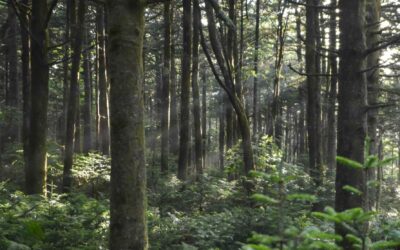Protecting wetlands
Wetland ecosystems provide significant benefits to fish, wildlife, and the economy. Approximately 60 percent of Tennessee’s wetlands have been destroyed due to historic mismanagement of these critical habitats. Tennessee Wildlife Federation works to restore wetland habitats statewide.
Why Wetlands?
of Tennessee’s wetlands have been destroyed.
Flood
Wetlands act as natural sponges that trap and slowly release flood waters.
of rare species use wetlands at some point in their life.

Wetlands provide critical habitat for numerous wildlife and plant species.
Bottomland hardwood forests are the most common type of wetlands in Tennessee and are abundant in the floodplains of streams and rivers.
Wetland ecosystems are often undervalued and underappreciated despite providing significant economic and ecological benefits. They help reduce damage from flooding, maintain water quality, replenish groundwater, store carbon, and provide important wildlife habitat. Wetlands also filter out sediment and chemicals from surface-water runoff.
Approximately one million acres of Tennessee’s wetlands have been destroyed due to historic land uses, impoundment, sedimentation, and urbanization. Restoring degraded wetlands and protecting existing wetlands—and the wildlife and plants that use them—is critical.
What we do for wetlands
1,200
of wetlands restored or conserved.
Wetlands restored by Tennessee Wildlife Federation are permanently protected with conservation easements.
5
of monitoring to measure success and long-term viability of restored wetlands.
Are you a landowner?
Interested in learning if your land is a fit for habitat restoration?
Give
Your generosity helps manage wildlife populations and restore habitats for a more vibrant Tennessee.
More Habitat Restoration
Federation to Restore Forest and Grassland Habitats in Tennessee
Tennessee Wildlife Federation has received a significant multi-year grant to restore forest and grassland habitats in Tennessee.
Largest Wetland Restoration to Date Completed
Restoration is key to ensuring this ecologically and economically significant habitat is not lost.
Federation Clinches A Win for Public Lands
The Federation came together with other NGOs and formed a coalition. Within days of forming the coalition, more than 1,200 individuals had emailed their legislators opposing bills that threatened public land.



